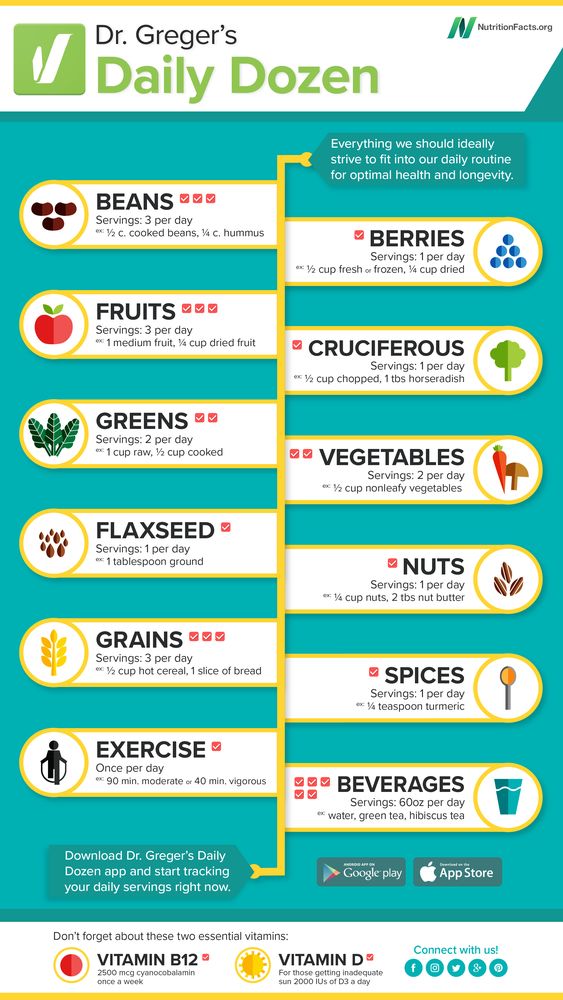What to eat?
Diverse, whole, plant based foods that meet all nutritional needs might look like:

Where can I get help?
Doctors
Find a medical professional to help you on your journey.- Plant-based Docs – Find a Practitioner
- Dr. McDougall – Find a Health Care Practitioner
- American College of Lifestyle Medicine
- Plant Based Doctors
Communities
Online forums are a great place for advice, questions, discussion, and motivation.Programs
Structured programs can guide you through the transition. Some cost money, some are free.- Nutriciously
- Complete Health Improvement Program (CHIP)
- Engine 2 Seven Day Challenge
- Challenge 22
- Plant Pure Nation
- Plant Based Nutrition Certificate
- Forks Over Knives Cooking Course
Where can I learn more?
See the research page or start looking through Google Scholar for scientific sources.
Online Education
For summaries and explanation of complex nutritional science:
- Nutrition Facts
- Dr McDougall Education
- Harvard Nutrition Source
- Physicians Committee for Responsible Medicine
Books
These popular books provide overviews of how and why WFPB works so well. More books can be found on the endorsements page.
- How Not To Die
- Proteinaholic
- The Starch Solution
- Dr. Neal Barnard's Program for Reversing Diabetes
- Prevent and Reverse Heart Disease
- Whole
What's for dinner?
Whether you need cheap, fast, and easy or delicious and decadent there's a WFPB recipe waiting for you. Also see the "Books" section for recipe books.- Forks Over Knives
- Engine 2 Diet
- Plant Based on a Budget
- McDougall Recipes
- Nutrition Studies Recipes
- Happy Herbivore
- Vegaroo
- Brand New Vegan
- Feasting on Fruit
- Straight Up Food
- The Vegan 8
- Dreena Burton
- Fat Free Vegan Kitchen
- Oh She Glows
- Clean Food Dirty Girl
Getting Started Tips
- Everyone's body is different. Increasing WFPB intake and reducing animal products+processed foods is generally associated with better health. However, allergies, food sensitivities, or digestion issues may make your individual diet look a little different. Talk with a doctor or dietitian for help.
- Perfection is not required, but "moderation in everything" is not necessarily healthier. For example, the very similar Mediterranean or DASH diets have been shown to have very good health outcomes, with amazingly huge improvements over a typical westerner's health and diet. But when direct tested against WFPB , WFPBD typically produces even better health outcomes.
- Support groups can help you make permanent change. These can include your doctor or dietitian , online communities, family, and friends.
- Filling up on healthy, whole, plant-based foods first makes it less likely to over-indulge in unhealthy snacks.
- With a consistent change in eating habits, taste can changein as little as 2 months.
- Eating a nutrient-dense WFPBD may make it necessary to increase the volume, amount, or frequency of food eaten to maintain your calorie intake.
- Don't go grocery shopping when hungry, as it may lead to buying more junk food.
- Buy and prepare food in bulk to save time and money. Preparing ahead of time can lead to healthier eating choices.
- Reduce food waste by properly storing produce.